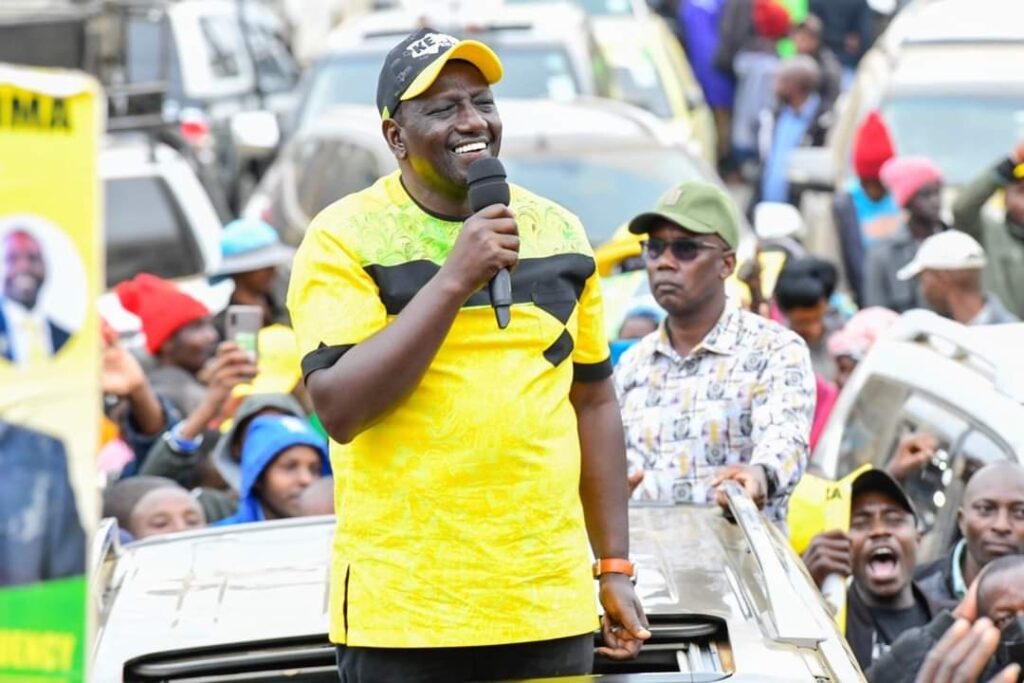It is an indubitable truth than the Supreme Court verdict was clear, firm and ex cathedra.
The apex court pronounced itself on the nine issues presented by petitioners quashing all prayers sought!
The court was emphatic on the petition as a pro Afro-epistemology would launch deadly arsenal against domination of Eurocentric epistemological paradigm.
The court was emphatic on the petition as a pro Afro-epistemology would launch deadly arsenal against domination of Eurocentric epistemological paradigm.
Okoyo
From the onset, let me state the Supreme Court of Kenya (SCOK) makes determination based on the weight of evidence supplied.
Evidential value thus becomes an important ingredient upon which matters are decided. To this extent, both petitioners and respondents must demonstrate presence or absence of facts in arguing out their cases.
Azimio hopes
While it was visibly apparent that Azimio la Umoja had impregnable evidence going by the manner in which the same was delivered (quantitatively speaking), it remains a puzzle to the hoi polloi why the top most court failed to see merit in any of the allegations listed.
The court termed ‘evidence’ adduced as hot air.
Why so much focus on the presidency?
To most Kenyans, the presidency is the single most diadem for tribal superiority. To be a president, one must mobilize his ethnic base and build a citadel around it.
Thereafter, the formidable candidate is one who will use money, influence and the gift of the gab to woe ‘friends’ from what is generally politically considered as other regions.
SCOK’s ruling did three important things: it quelled tension that arose with suspicion on the manner in which election was conducted.
This granted some healing of sorts to those badly wounded. It gave a ray of hope during a turbulent season.

The legitimacy
Most importantly, the ruling granted Dr William Ruto’s win a sense of legitimacy which had sharply been put into question by a plethora of doubts heaped around the process that birthed his victory.
Independent Electoral and Boundaries Commission (IEBC), the midwife in this process, was equally vindicated.
Thirdly, the ruling has strengthened Kenya’s democracy. A significant population has faith in the Judiciary which has in a subsequent occasion ruled not in favour of the government in place.
It is commendable to note the gains we have achieved since the promulgation of a new constitution in 2010.
For better growth of democratic space, independence of institutions should be encouraged and supported. Politics of maligning a particular ethnic community must end.
Thorny issues
Citizens, irrespective of their ethnic backgrounds must be seen as electable provided they meet provisions set out in the constitution.
It will certainly take us years to realize this because of the deep-rooted hate some ethnic communities harbour against others.
These and more and are some of the thorniest issues that if not addressed will increase voter apathy to unprecedented levels.
Back to the debate on presidency. In order to assert their dominance or machismo, most people think that clinching presidency makes one’s own tribal faction superior to others.
This will be intractably clear from the debates on television where the media will invite politicians from different ethnic backgrounds to cut into each other.
It is never a discourse on ideology but a sheer display of how one’s tribe can beat the other in numbers or sometimes going too low to the level of labeling cultural practices of other communities as inferior.
Ethnic lens
Even to judge how an independent institution would remain independent is first to look at the ethnic composition of those at the top of such institutions. Sadly, this is what Kenya has become.
It is no doubt that in this country, some have missed job opportunities or have been vilified on account of their names (read tribes).
Yet naming- especially African names- should be the pride of Africa that espouses our values and beliefs.
To castigate a person based on his name is to denounce our unique identity as Africans.
Precisely why we should make the African epistemological paradigm central in our education system.
erhaps this may not be an elixir against ethnic jingoism and tribal bigotry in Kenya. However, it should be the responsibility of all Kenyans to inculcate into the minds of our children the love for Kenya and value for humanity.
Okoyo
For proponents of African epistemology, the argument has always been that Western epistemology which dominates our education system is largely individualistic yet knowledge is seen as communalistic in the African setting.
Perhaps this may not be an elixir against ethnic jingoism and tribal bigotry in Kenya. However, it should be the responsibility of all Kenyans to inculcate into the minds of our children the love for Kenya and value for humanity.
That way, we can be sure of raising a united country. Countries do not exist because of their names but rather the thinking system or philosophy that informs our foundations and bequeath a sense of pride.
Political enmity is poisonous and can decimate a population. Kenyans must choose the political philosophy that works for them.
‘Success’ in politics is not representative of success in life. Excellence, from my view, can be achieved when we pursue professionalism with a deep sense of mission, one of quadrangular pillars of the Oriental life concept of Ikigai- the Japanese secret to long life.
The writer is a communication specialist
